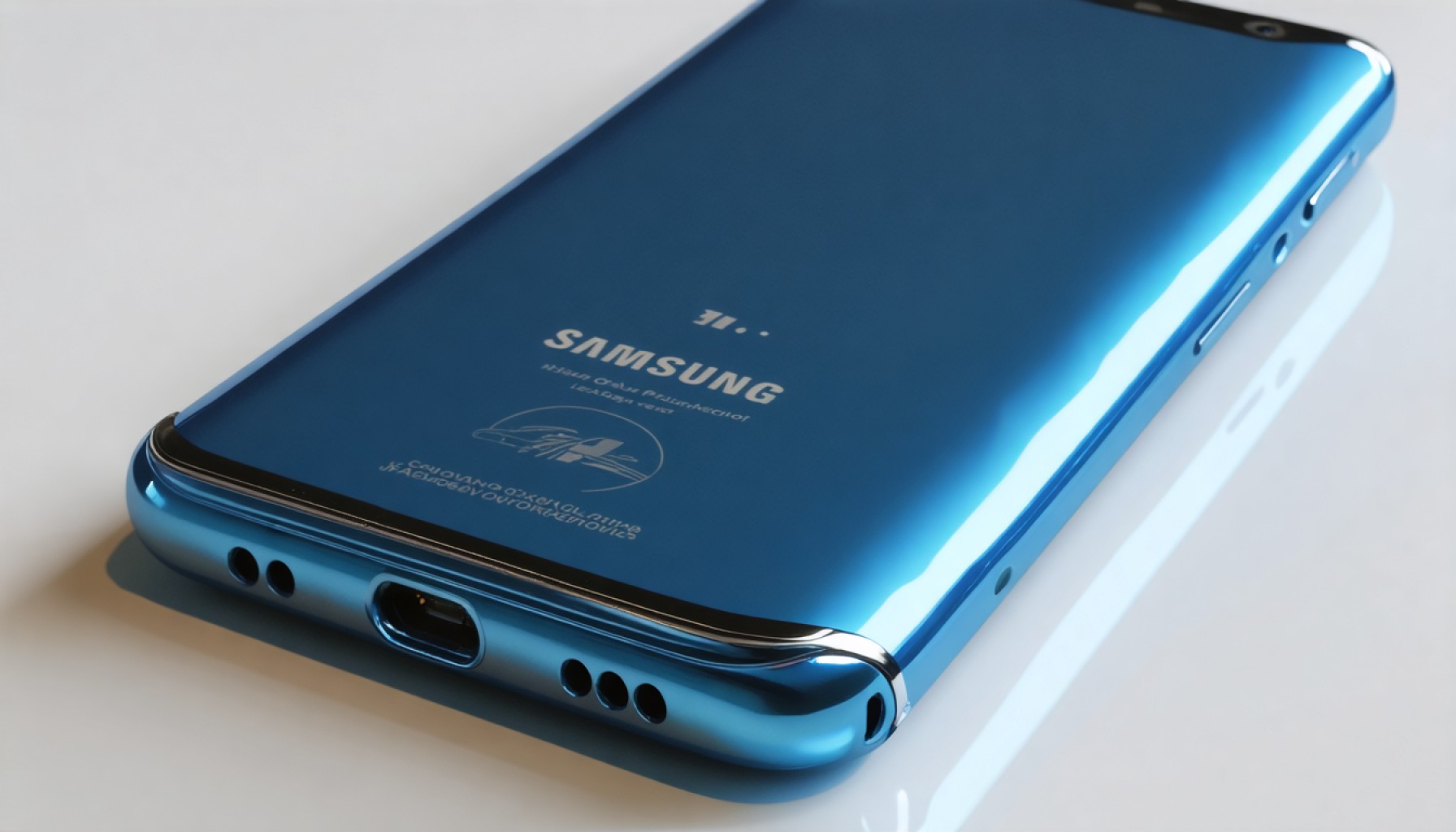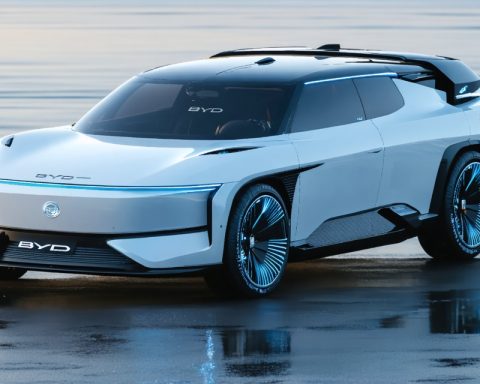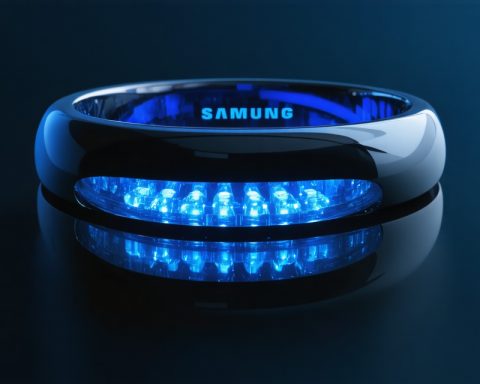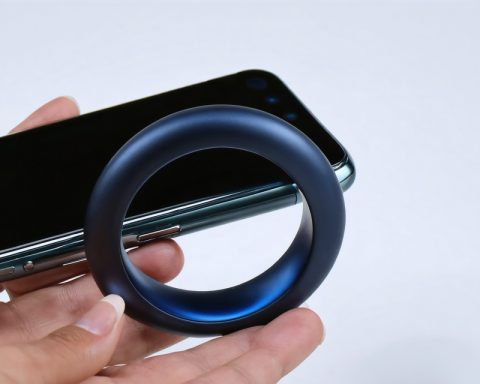- Samsung plans to revolutionize wearable technology with solid-state battery innovation in its Galaxy Ring 2, expected by late 2025.
- Solid-state batteries promise enhanced energy density, offering increased longevity and safety compared to traditional lithium-ion batteries.
- These advancements enable uninterrupted tracking, vital for sleep monitoring and continuous health insights.
- Samsung aims to expand this technology to earbuds by 2026 and smartwatches by 2027, promising significant usability enhancements.
- The Korean tech giant is focused on both technological breakthroughs and practical enhancements, enhancing device performance and consumer satisfaction.
- Users can anticipate longer battery life and better performance in future Samsung devices, supporting a seamless, ‘set and forget’ lifestyle.
Samsung is poised to revolutionize the wearable technology landscape with a bold step forward in battery innovation. As whispers of their upcoming smart wearables emerge, one detail stands out: the highly anticipated Samsung Galaxy Ring 2 is expected to feature pioneering solid-state battery technology as early as late 2025. This cutting-edge development promises to extend the device’s longevity without sacrificing performance, a game-changer for the compact and often power-hungry world of smart jewelry.
Imagine a world where your sleek, unassuming smart ring could accompany you day and night, effortlessly tracking critical metrics without the constant worry of charging. Solid-state batteries, with their notable advancements in energy density, may hold the key to turning this vision into reality. Unlike traditional lithium-ion counterparts, solid-state technology involves a more stable, solid electrolyte, offering a safer and more efficient power source that could significantly enhance wearable tech.
The appeal of such innovation is particularly poignant for sleep tracking, where uninterrupted monitoring through the night is crucial. By minimizing charging interruptions, users can rely on their Galaxy Ring for continuous health insights, making it as dependable as it is discreet.
But this is just the beginning. Samsung’s ambitions extend beyond rings, with plans to integrate the advanced battery technology into their earbuds by 2026 and smartwatches by 2027. These developments promise not just incremental improvements, but potentially transformative gains in usability and satisfaction. Imagine your wireless earbuds lasting days without recharge, or a smartwatch that outlasts your busiest weekend getaway.
The Korean tech giant’s strategic approach to innovation underscores a philosophy that blends technological breakthroughs with practical enhancements. It’s not just about making things new; it’s about making things better. With this ethos, the future of wearables looks bright—and enduring.
For consumers, the takeaway is clear: stay motivated by the promise of longer life and better performance. As these innovations roll out, Samsung users can look forward to devices that don’t just keep pace with their lives but enhance them on a remarkable new level. In the quest for a ‘set and forget’ lifestyle, Samsung’s dive into solid-state battery technology may well be the lifeline we’ve all been waiting for.
Harnessing the Future: Samsung’s Leap in Wearable Tech with Solid-State Batteries
Understanding Solid-State Batteries in Wearables
Samsung’s foray into solid-state battery technology marks a potential revolution in the wearable tech industry. This innovation is particularly significant for devices like the Samsung Galaxy Ring 2, anticipated to debut in late 2025. Here’s why solid-state batteries stand out:
– Energy Density: Solid-state batteries boast higher energy densities compared to traditional lithium-ion batteries. This means they can store more energy in the same amount of space, which is ideal for compact devices like smart rings.
– Safety: The solid electrolyte used in these batteries reduces the risk of leaks and potential overheat scenarios, enhancing device safety.
– Longevity: Users can expect longer battery life, portending fewer charges—critical for 24/7 wearables such as sleep trackers.
How Solid-State Batteries Could Transform Samsung Devices
While the Samsung Galaxy Ring 2 is at the forefront, the solid-state revolution is poised to spread across Samsung’s lineup by 2027. Key potential transformations include:
– Wearable Tech: Beyond rings, Samsung plans to implement these batteries in earbuds by 2026 and expand them to smartwatches in 2027. This means extended use time without frequent recharges, which is a significant improvement in user convenience.
– Consumer Electronics: The enhanced battery life could also impact other devices like smartphones and tablets, aligning with global trends towards longer-lasting electronics.
Real-World Use Cases and Practical Benefits
The integration of solid-state batteries will primarily enhance user experience in various scenarios:
– Sleep Tracking: The uninterrupted function of health-monitoring wearables will provide better insights and comprehensive health data without charging breaks.
– Active Lifestyles: Athletes and fitness enthusiasts can benefit from continuous tracking without “battery anxiety.”
– Travel and Work: Professionals and travelers will appreciate devices that can keep up during long trips or busy workdays.
Market Forecasts & Industry Trends
The global market for solid-state batteries is expected to grow significantly. According to a report by Markets and Markets, the market size is projected to reach USD 1.407 billion by 2025, with a CAGR of 28.6% from 2020. Samsung’s strategic embrace signals a shift in the industry towards more robust and reliable technology.
Pros & Cons Overview
Pros:
– Extended battery life for wearables.
– Enhanced safety profile.
– Potential to shrink device size due to compact battery architecture.
Cons:
– Potentially higher production costs.
– Initial market availability may be limited.
Actionable Recommendations
– Stay Updated: Follow Samsung’s announcements to be first in line for the next-gen Galaxy Ring.
– Study Emerging Tech: Understanding the basics of solid-state battery technology can help consumers make informed decisions when these products hit the market.
– Energy Management: As these devices roll out, integrate them into a broader energy-efficient lifestyle, optimizing for maximum utility.
Final Thoughts
Samsung’s innovative use of solid-state batteries represents not just a technological leap but a significant enhancement in consumer convenience and device safety. As the company integrates this technology across their product lines, the future of wearables indeed looks promising. For more insights on Samsung’s latest ventures, visit their official site: Samsung.


















